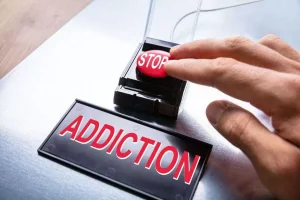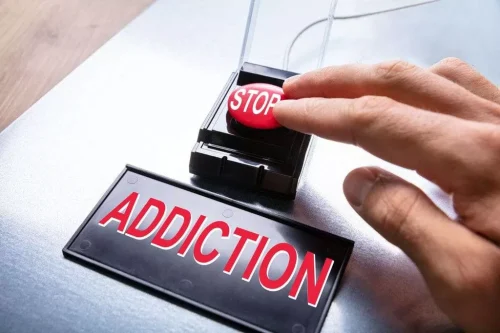Why Should I Get Sober?: 5 Benefits of Sobriety

Adopting recovery as a way of life takes courage in admitting that you are powerless over drugs and alcohol. Taking the necessary steps to surrender shows that you are stronger braver than you think. Share your decision to stay sober and ask for their encouragement.

The 6 Stages of Mental Health Recovery
Working a recovery program will instill the morals and principles that you never thought you could develop. Becoming the person you have wanted to be is realistic once you start changing everything. Your shining example will be a reality when you put down the substances and pick up the tools of recovery. Sobriety anxiety is not just a psychological phenomenon; it has roots in brain chemistry. Long-term substance use alters the brain’s reward system, particularly affecting neurotransmitters like dopamine and serotonin. When a person stops using substances, Alcoholics Anonymous their brain needs time to readjust, which can lead to anxiety and mood fluctuations.
Identify Supportive People in Your Life
LSD has been shown to cause hallucinations, paranoia, anxiety, and self-harmful behaviors. The risk of suicide is greatly heightened in PCP users. Drug use can lead to decreased inhibition and increased unprotected sexual activity, which, in turn, increases the risk of sexually transmitted infections (STIs). When it comes to injectable drugs, sharing needles can also increase the risk of HIV/AIDS and other illnesses. According to the National Institute on Drug Abuse, chronic marijuana use during adolescent years has been proven to lead to an irretrievable loss of IQ points.
Why Is Sobriety So Hard? 7 Hidden Reasons You Might Not Know
Rather than believe sobriety is lame, you should try it before you knock it. There is nothing lame about living the life you were intended to live. Take into consideration the best reasons to get sober, and you will be pleasantly surprised how well recovery will work for you.

Reasons to Stay Sober

To avoid relapse and remain sober, it’s important to develop healthy relationships. Some of the immediate changes you will need to make will be obvious—like not hanging around the people that you used with or obtained drugs from. After all, you can’t hang around your drug dealer or old drinking buddies and expect to remain sober for very long. The more tools you have for identifying triggers, coping with stress, and managing your new sober life, the easier you’ll prevent relapse.
Reclaiming Personal Health
Practice observing your thoughts and feelings without judgment. This can help you identify triggers early and respond thoughtfully rather than reactively. In this episode of the podcast, I talk more about why you need a goal and share some personal goal stories.
- You’ll be able to develop and maintain lasting relationships.
- In times like this, it’s more important than ever to keep your sobriety.
- We carve out pathways that link cues to drink alcohol, and this behavior can become automatic and difficult to get out of.
By staying sober, you can achieve more restful, restorative sleep, allowing your body to heal and recharge, ultimately benefiting your overall health and well-being. One of the many benefits of sobriety is improved sleep quality. Substance abuse can significantly interfere with sleep quality and exacerbate insomnia, leading to fatigue and impaired functioning during the day. By choosing sobriety, reasons to stay sober you can enjoy better sleep patterns and overall restfulness.
Holistic Approach to Health and Wellness

This system, primarily driven by the neurotransmitter dopamine, is responsible for feelings of pleasure and motivation. When substances are introduced, they cause an artificial surge in dopamine levels, far exceeding what’s typically experienced from natural rewards like food or social interactions. The biological challenges of sobriety underscore the importance of viewing addiction as a chronic brain disease rather than a moral failing. This perspective can help individuals and their support networks approach recovery with greater compassion and evidence-based strategies.
- This article will list a few of the best reasons to stay sober.
- This process underlies the development of tolerance, where increasingly larger amounts of a substance are needed to achieve the same effect.
- For those addicted to alcohol, the first step in the treatment program will likely be medical detoxification.
- Getting sober is a sprint, staying sober is like running a marathon without a finish line.
- The fact is that addiction treatment and recovery can only help you if you are ready to receive that help and reclaim your life from drug and alcohol addiction.
Supportive Family and Friends
Staying sober can help alleviate insomnia and other sleep disturbances by allowing your body to naturally regulate its sleep-wake cycle. As a result, you can more easily fall asleep and enjoy longer more restful sleep. This can lead to improved mood, increased energy, and better overall health. Let’s delve into the various support groups and resources that can aid you in your journey to sobriety. Developing resilience is an important part of recovery because it gets easier for everyone differently. Ultimately, this will benefit both your personal and professional life.
Xanax Abuse: Warning Signs & Symptoms Of Xanax Addiction And Abuse
It signifies a dedication to breaking free from the destructive cycle of substance abuse and embracing healthier alternatives. Sobriety anxiety is a complex emotional state many people face during recovery from substance use disorders. It’s characterized by persistent worry, fear, and unease about living life without alcohol or drugs. This anxiety often stems from uncertainty about how to navigate social situations, manage emotions, or find enjoyment in life without substances. Building a strong support system is crucial for maintaining sobriety. Start by identifying individuals who genuinely support your recovery journey.
